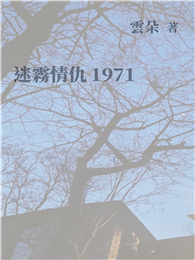This book considers the past and present legacies, continuities and change of the United Nations Trusteeship System by assessing consequences and legacies of decolonization in contemporary society, international organizations and international politics. International contributors address the UN Trusteeship System as a venue for multiple state and non- state actors and its effect on the international system. Rather than viewing UN trusteeship as a bygone phenomenon, the volume underscores its current relevance, particularly in view of the recent resurgence of trusteeship models such as in Kosovo and East Timor. Offering a novel and robust, yet simple and intuitive analytical framework through which to understand a broad range of cases related to the Trusteeship System and its impact on the international system, the book places emphasis on the agency of states in the Global South and highlights the importance of multiple actors in global governance. It will be of interest to scholars of international relations theory and history in a variety of fields, ranging from African Politics to Intergovernmental Organizations and Comparative Politics.
| FindBook |
有 1 項符合
The United Nations Trusteeship System: Legacies, Continuities, and Change的圖書 |
 |
The United Nations Trusteeship System: Legacies, Continuities, and Change 出版社:Routledge 出版日期:2024-05-27 語言:英文 規格:平裝 / 220頁 / 普通級/ 初版 |
| 圖書館借閱 |
| 國家圖書館 | 全國圖書書目資訊網 | 國立公共資訊圖書館 | 電子書服務平台 | MetaCat 跨館整合查詢 |
| 臺北市立圖書館 | 新北市立圖書館 | 基隆市公共圖書館 | 桃園市立圖書館 | 新竹縣公共圖書館 |
| 苗栗縣立圖書館 | 臺中市立圖書館 | 彰化縣公共圖書館 | 南投縣文化局 | 雲林縣公共圖書館 |
| 嘉義縣圖書館 | 臺南市立圖書館 | 高雄市立圖書館 | 屏東縣公共圖書館 | 宜蘭縣公共圖書館 |
| 花蓮縣文化局 | 臺東縣文化處 |
|
|
圖書介紹 - 資料來源:博客來 評分:
圖書名稱:The United Nations Trusteeship System: Legacies, Continuities, and Change
內容簡介
作者簡介
Jan Lüdert is the Head of Programs at the German Center for Research and Innovation in New York City. He previously served as Associate Professor at City University of Seattle.
Maria Ketzmerick is an assistant professor at the University of Bayreuth and a Principal Investigator in the Network ’Postcolonial Hierarchies’.
Julius Heise is a doctoral researcher at the Marburg Center for Conflict Studies (CCS) and research fellow at the collaborative research center ’Dynamics of Security’.
|











